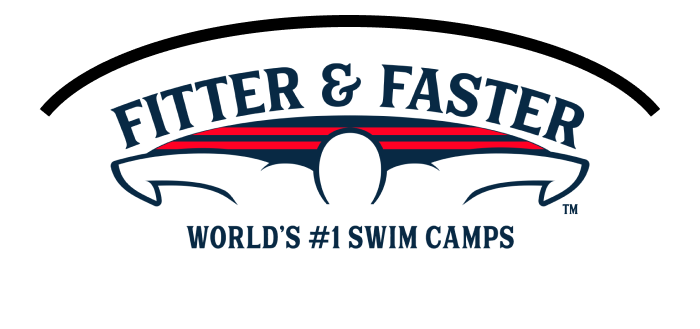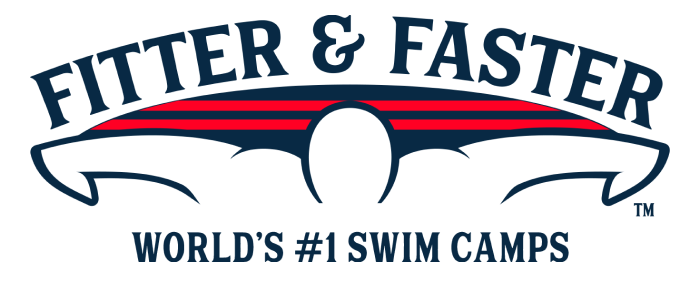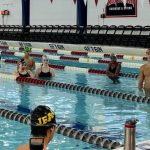Frisco, Texas Swim Camp Series for Ages 9 to 11
Texas Ford Aquatics
8353 Legacy Dr,
Frisco,
TX 75034
- days
- hours
- minutes
- seconds
Introduction
Fitter & Faster is producing a series of swim camps for competitive swimmers ages 9 to 11 at Texas Ford Aquatics in Frisco, Texas, throughout 2025! CLICK HERE for the swim camp page for ages 12 & over.
FRISCO, TEXAS SWIM CAMP SERIES (Ages 9 to 11)
-> Comprehensive Butterfly Racing Swim Camp (October 18 & 19, 2025)
-> Comprehensive Freestyle Swim Camp (December 13 & 14, 2025)
Click the “Curriculum Menu” below for details about each swim camp!
-> Availability in each session is limited to ensure the highest level learning experience.
-> SAVE when you purchase “Entire Swim Camp Bundles” for your swimmer.
Select a curriculum below
COMPREHENSIVE BUTTERFLY RACING SWIM CAMP: October 18 & October 19, 2025
At the highest level of swimming, butterfly is the second fastest stroke and beautiful to watch because of its rhythmic and powerful strokes. There are some complexities to establishing a smooth, rhythmic fly, but with practice and attention to detail your swimmer can master the stroke and begin swimming it for longer distances and at very fast speeds! No matter your swimmer’s level, this 2-day camp will strengthen their butterfly technique, racing and training skills that will lead to faster and more efficient butterfly races!
- DAY 1 (Saturday, October 18): BUTTERFLY TECHNIQUE: We want your swimmer to establish a rhythmic butterfly. Today we will practice various drills and skills that will enable your swimmer to have flowing hips and a long, more powerful butterfly stroke.
- Bodyline: A butterfly race is going to be fastest with a proper bodyline. Even the slightest adjustment of the chin, neck, and/or back can make a huge difference. As swimmers mature in the sport and grow physically, their body position shifts and bad habits can emerge. Participants will learn and practice proper posture and engagement of their core to have a strong foundation for better technique - creating a full-body connection for more hydrodynamic and efficient butterfly strokes.
- Kick: Each butterfly stroke has two kicks to propel the swimmer towards the other end of the pool! If the kicks are properly timed and equally strong, they can positively impact your swimmer’s efficiency and stroke timing! Your swimmer will work on how and when to kick in butterfly for maximum speed.
- Pull: Long and smooth strokes allow swimmers to have a more efficient and fluid butterfly. The pull in butterfly keeps a swimmer accelerating forward. Your clinicians will work with participants to establish an early vertical forearm, “the catch”, enabling the swimmers to put immediate pressure back on the water. Properly completing the stroke keeps the swimmer moving forward efficiently and fast.
- Breath: The timing of the breath in butterfly has a direct relationship on a swimmer’s body position, pull, kick and TIMES! At this camp, we will work with participants on breathing with their chin low to the water... and WHEN to breathe in their stroke cycle so that they develop the most efficient stroke possible!
- DAY 2 (Sunday, October 19): BUTTERFLY RACING AND TRAINING SKILLS: On the first day of this camp swimmers worked on skills to implement a solid, efficient butterfly stroke. On Day 2 we will work on racing skills and apply speed to their butterfly. Your swimmer's elite clinicians will work with participants on maintaining their technique by developing proper distance per stroke, appropriate race tempo, and training for a faster and stronger butterfly.
- Stroke Length: Lengthening your swimmer’s butterfly stroke will enable them to “catch” and hold onto more water to propel them as they swim. In butterfly, it is particularly important to establish a “rhythmic flow”. We will teach participants how to stay long and avoid a short butterfly stroke that is inefficient and not sustainable for very long. The clinicians will work with participants on this important skill for swimming fast butterfly.
- Tempo: Tempo in butterfly is the rate at which a swimmer is moving their arms and hips. When swimming butterfly races many athletes tend to take too many short strokes (“spin their wheels”) and not “hold onto the water”. At this camp we will explore different tempos that are sustainable for any distance your swimmer is racing.
- Powerful Underwater Dolphin Kicking: There are a few different techniques that swimmers use when underwater dolphin kicking. The common theme of these techniques is that the best swimmers kick up and down with equal power. We will show your swimmer the different techniques that elite swimmers use and teach them how to implement.
- Speed Set: At the end of this session your swimmer will do a short and fast swim set to practice everything they have learned over the past two days.
COMPREHENSIVE FREESTYLE RACING SWIM CAMP: December 13 & December 14, 2025
Freestyle is the first stroke we learn. It’s the stroke we swim the most at practice. There are more freestyle races and relays at meets... and it is the fastest stroke to move through the water. As with any other stroke, the more efficient and powerful your technique - the more success you will experience with your practices and freestyle races as your career progresses. Over two days, your swimmer, no matter their level, will improve their freestyle technique, racing and training skills!
- DAY 1 (Saturday, December 13): FREESTYLE TECHNIQUE: Cultivating good habits to swim high level freestyle begins as soon as you learn the stroke. Even if your swimmer is already in high school - it’s never too late to begin practicing techniques that will drastically improve their efficiency, power and times. Today, your swimmer will work on techniques to strengthen their bodyline, catch, kick, pull, and breathing pattern.
- Bodyline: A freestyle race is going to be fastest with the proper bodyline. Even the slightest adjustment of the chin, neck, and/or back can make a huge difference. As swimmers mature in the sport and grow physically, their body position shifts and often bad habits are created. Participants will learn and practice proper posture and engagement of their core to have a strong foundation for better technique - creating a full-body connection for more hydrodynamic and efficient strokes.
- Rotation: Freestyle is fastest and most efficient when a swimmer’s body is “rotating” around their spine with each stroke. This part of swimming freestyle has a big effect on maintaining a proper bodyline. Participants will practice activating their core muscles to form a powerful connection from head to toe with every stroke - resulting in faster freestyle.
- Kicking: A swimmer’s kick is the motor behind their freestyle! There are obviously proper and improper ways to kick which we will review at the camp. Just as important, however, is practicing the complexities of how and when swimmers need to “shift gears” in their legs to become stronger and faster racers.
- Pull: The pull in freestyle keeps a swimmer balanced and accelerating forward. Essentially the best swimmers are creating a paddle with every stroke. The clinicians will work with participants to establish an early vertical forearm “the catch”, enabling the swimmer to put immediate pressure back on the water. Properly completing the stroke keeps the swimmer moving forward efficiently and fast.
- DAY 2 (Sunday, December 14): FREESTYLE RACING AND TRAINING SKILLS: The technique for swimming a fast freestyle race changes depending on the distance. Learning to prioritize tempo and length of stroke, while maintaining efficiency has a huge impact on maximizing speed for sprints or increasing endurance for distance races.
- Stroke Length: A long stroke will enable your swimmer to “catch” and hold onto more water to propel them as they swim. Whereas, a short stroke is inefficient and not sustainable for very long. The clinicians will work with participants on this important skill for fast swimming.
- Tempo: Tempo is the rate at which a swimmer is moving their arms and legs. When sprinting short races many swimmers often tend to take too many strokes (“spin their wheels”) and not “hold onto the water”. At this camp we will explore different tempos that suit your swimmer for different distances.
- Pacing/Control: A swimmer’s tempo will change depending on the race that they are swimming. It may also change at different points during the same race! Your elite clinician will teach participants how to manipulate their tempo, speed and energy at different points in a race. This is called Pacing or “Control”.
- Breathing Pattern: Establishing a breathing pattern will help the swimmer stay focused and relaxed during their swim. It will also help them finish the race with enough oxygen to close the race at full speed.
- Speed Set: At the end of this session your swimmer will do a short and fast swim set to practice everything they have learned over the past two days.
SESSION START TIMES FOR ALL CAMPS:
- DAY 1 (Saturdays): Check-in 1 PM, Camp 1:15-3:45 PM
- DAY 2 (Sundays): Check-in 8:45 AM, Camp 9-11:30 AM
ASK QUESTIONS
Swimmers and parents are invited to ask the clinicians questions during a Q&A session. Gain insight into their training regimen, diet and nutrition, and recovery tactics.
WATCH THE CLINICIANS
Observe clinicians swim at full speed and demonstrate a progression of perfectly executed drills to achieve powerful, efficient, and fast swimming.
PUT YOUR SKILLS TO THE TEST
Throughout the camp, swimmers will practice what they've learned with some of the world's most elite Swimmer Clinicians and coaches!
Take a photo, get autographs, and chat with your clinicians!
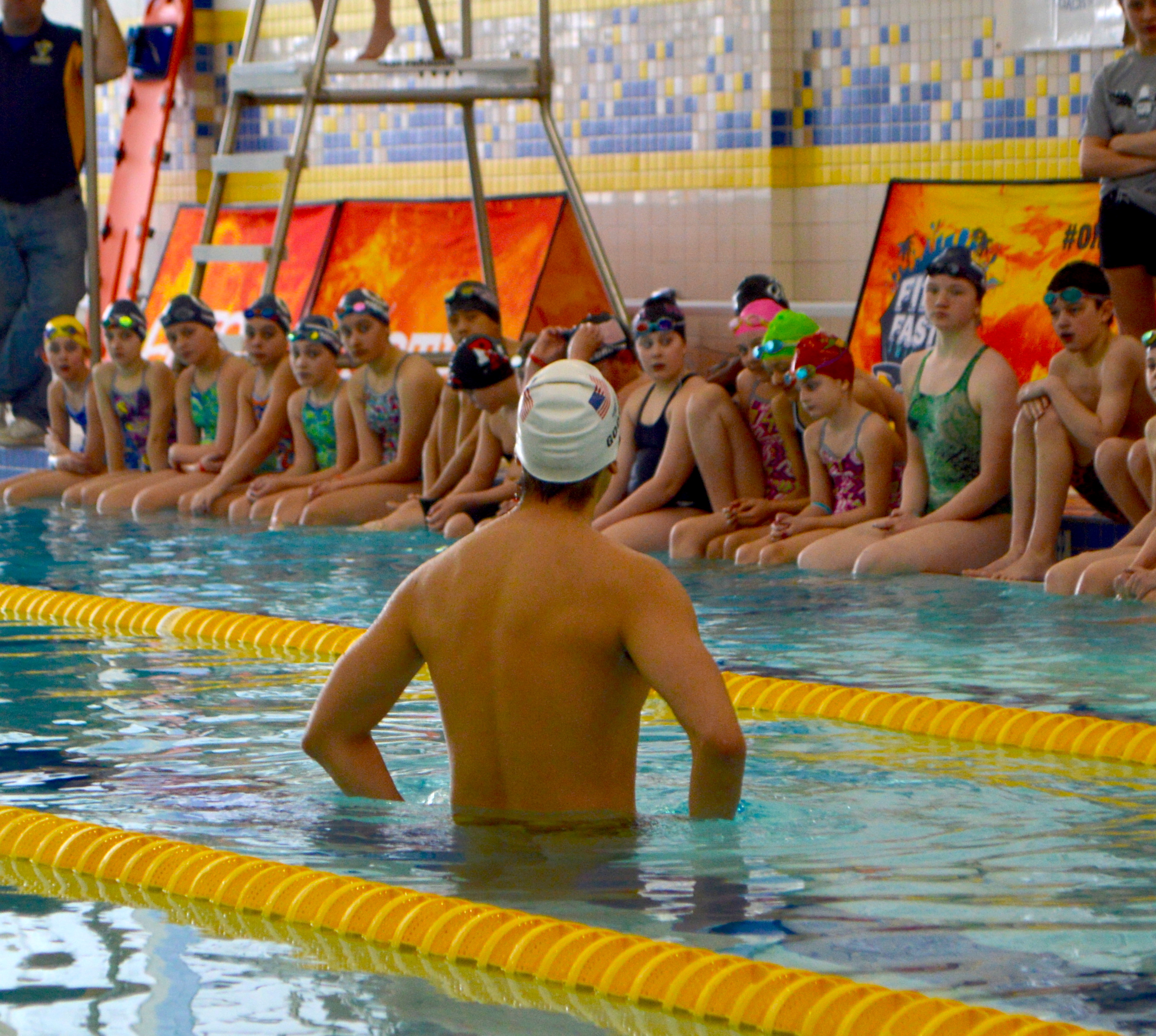
Elite Clinician
Fitter and Faster clinicians are Olympians and National Team members who have achieved at the highest level of the sport of swimming... and who have the unique skill to teach what they know from a technical perspective to swimmers of all ages and abilities.
Inquisitive, Educated Swimmers are Faster Swimmers! Sign up today!


